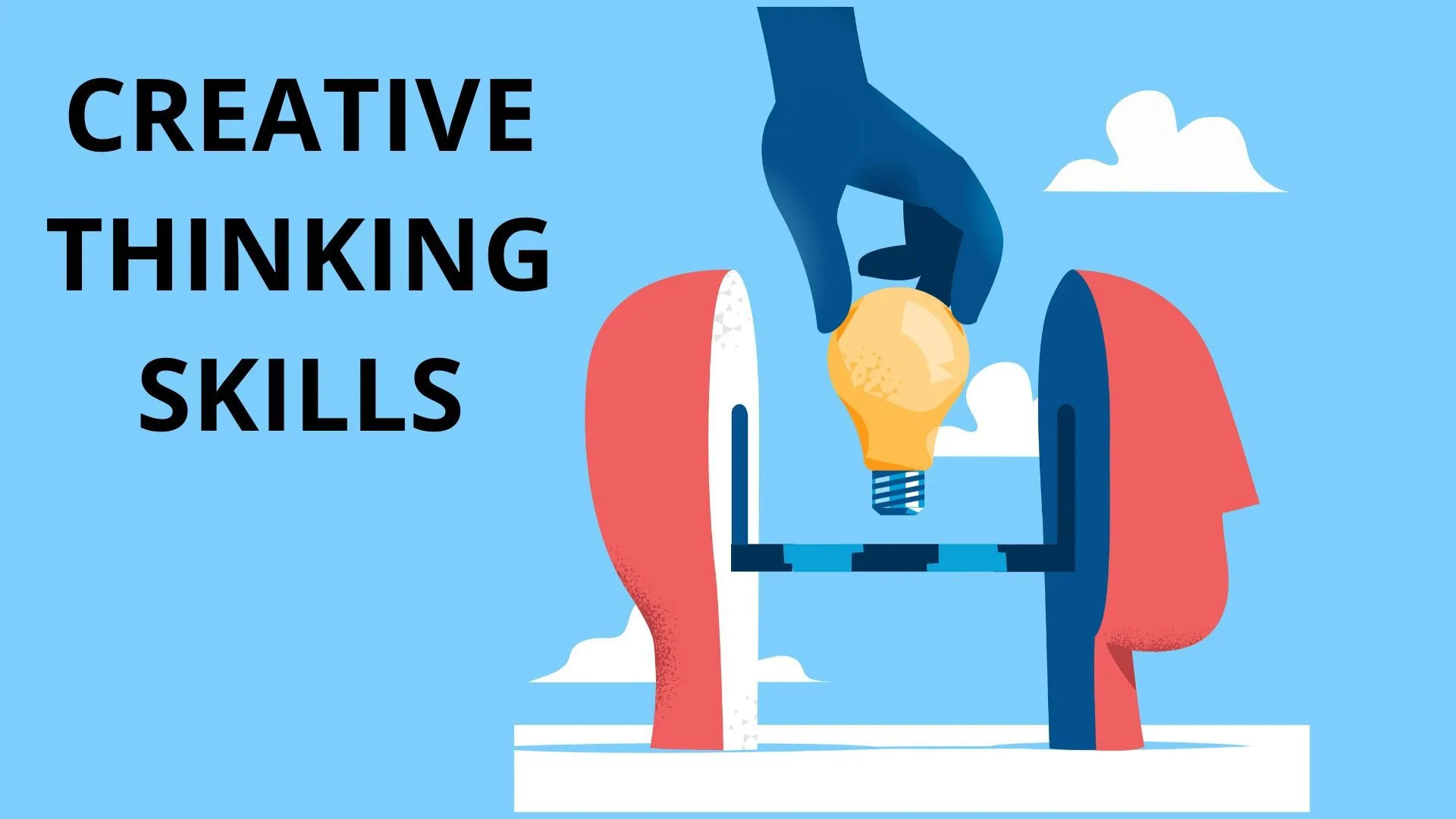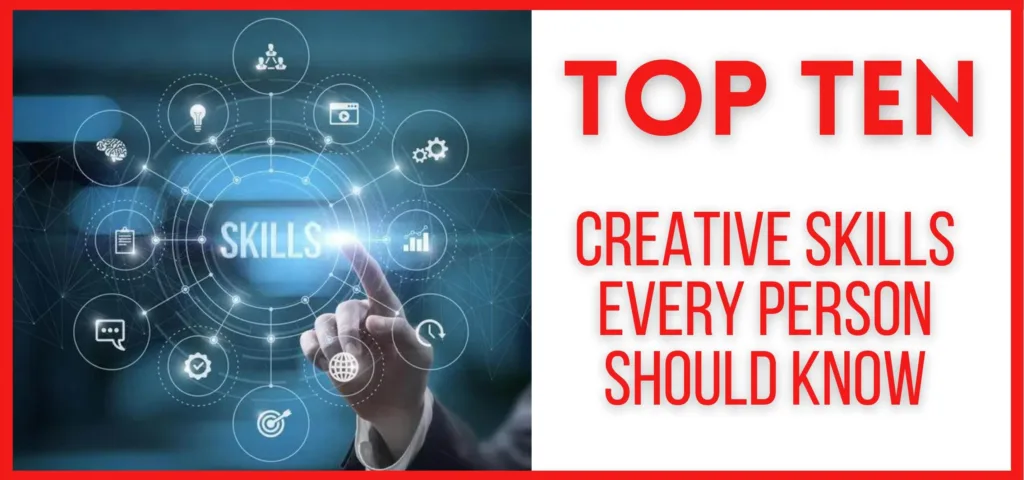Creative skills encompass a broad range of abilities that allow individuals to generate original ideas, express themselves effectively, and solve problems innovatively. If you’re thinking about learning a new skill from home but would like some guidance to help you get started, then with the number of e-learning opportunities out there, you’ll be spoiled for choice. We’ve put together a list of ten creative skills you can learn from home, from drawing and baking to creative writing and photography. So, whether you’re serious about learning or just on the lookout for something fun to do in your spare time, here are some practical suggestions for how to get started.
Also, read: Top 10 Best Dog Sitting Apps in 2025
Level Up Your Creativity: Top 10 Creative Skills Every Person Should Know in 2025
The world is becoming increasingly complex and demanding, and the ability to think creatively is more important than ever. Creativity helps us solve problems, generate new ideas, and communicate effectively. While some people may think of creativity as something reserved for artists and musicians, the truth is that everyone can benefit from developing their creative skills. Here are 10 creative skills that everyone should know in 2025:

1. Problem-solving
Forget painting masterpieces or strumming a guitar; the hottest creative skill in 2025 will be problem-solving. Think of it as your mental Swiss Army knife, ready to tackle challenges big and small. Whether it’s unclogging a drain, navigating a career change, or diffusing family drama, creative problem-solving involves ditching the usual toolbox and thinking outside the box. It’s about looking at things from new angles, brainstorming wild ideas, and fearlessly experimenting to find unique solutions. This skill isn’t just reserved for geniuses; anyone can hone it by embracing curiosity, asking “What if?” and learning from failures.
So the next time you face a hurdle, don’t just stare at the wall. Unleash your inner problem solver, get creative, and watch your world open up to exciting possibilities. Remember, the most innovative solutions often come from the most unexpected places, and that place could be right inside your mind!
2. Critical thinking
Imagine navigating a world overflowing with information, opinions, and biases. Scary, right? That’s where critical thinking swoops in like a mental Swiss Army Knife. Forget the fancy name; it’s simply a question: Is this true? Why/why not? Is there another side? It’s about analyzing facts, identifying hidden agendas, and drawing your own well-reasoned conclusions.
Think of it as this sensational news article. You analyze the source, check for a factual basis, and compare it to other perspectives. Suddenly, the sensationalism fades, replaced by a nuanced understanding. Critical thinking empowers you to avoid misinformation, make informed decisions, and have impactful conversations.
It’s not just about being skeptical, but about being curious, open-minded, and seeking diverse viewpoints. It’s about asking probing questions, even when they’re uncomfortable. Think of it as a muscle; the more you exercise it, the stronger your ability to see through the noise and arrive at sound judgements.
Also, read: Top 10 DIY Home Decor Projects for the Creative American in 2025
3. Communication
In today’s connected age, clear and captivating communication is no longer a luxury; it’s a creative superpower. Imagine your ideas, brimming with potential, locked away because you can’t express them effectively. Communication bridges that gap, transforming your thoughts into impactful messages that resonate with others.
But communication isn’t just about speaking or writing well. It’s about weaving words into compelling narratives, actively listening to understand diverse perspectives, and using nonverbal cues to build genuine connections. It’s about adapting your style to resonate with different audiences, whether it’s crafting a persuasive proposal or delivering a captivating presentation.
Think of communication as your creative paintbrush, painting vivid pictures with your words and igniting imaginations. It allows you to collaborate effectively, sparking innovation and problem-solving through shared ideas. It empowers you to influence and inspire, leaving a lasting impact on those around you.
4. Storytelling
In a world overflowing with information, how do you make your voice heard? Enter storytelling, the ancient art of weaving words that captivate and connect. But forget fairy tales; 2025 demands a modern spin. Think impactful presentations, persuasive marketing pitches, and even captivating social media posts. Mastery of storytelling equips you to do it all.
Imagine presenting data so dry that it could choke a cactus. Imagine transforming it into a compelling narrative, painting a picture with words, and drawing your audience in with relatable anecdotes. That’s the power of storytelling. It’s not just about entertainment; it’s about building trust, influencing decisions, and leaving a lasting impression.
Also, read: Top 10 Sustainable Living Hacks for Eco-Conscious Americans:
5. Collaboration
Collaboration is a cornerstone of creativity, serving as a catalyst for innovation and growth in both personal and professional spheres. In today’s interconnected world, the ability to work effectively with others is more important than ever. By harnessing diverse perspectives, skills, and experiences, collaboration unleashes the collective creativity of a group, leading to solutions that are often greater than the sum of their parts. Through collaboration, individuals can leverage each other’s strengths, compensate for weaknesses, and inspire one another to reach new heights.
Whether it’s brainstorming ideas, tackling complex problems, or executing projects, collaboration fosters synergy and fosters a supportive environment where creativity flourishes. Moreover, collaboration cultivates communication skills, empathy, and mutual respect, laying the foundation for strong relationships and successful partnerships. Embracing collaboration as a creative skill empowers individuals to connect, collaborate, and co-create in ways that drive innovation and foster positive change in the world.
6. Adaptability
In the ever-changing landscape of the modern world, adaptability stands out as a crucial creative skill that every person should cultivate. Whether in personal or professional realms, the ability to adapt to new situations, challenges, and environments is essential for success. Adaptability allows individuals to thrive in dynamic circumstances, embracing change as an opportunity for growth rather than a barrier to progress. It enables one to quickly assess and respond to shifting conditions, adjusting strategies and approaches as needed.
Moreover, adaptability fosters resilience, empowering individuals to bounce back from setbacks and persevere in the face of adversity. By embracing adaptability, people can harness their creative potential by exploring new ideas, seizing opportunities, and navigating uncertainties with confidence. In essence, adaptability is not just a skill but a mindset—one that fosters innovation, fosters collaboration, and propels individuals towards their goals in an ever-evolving world.
7. Empathy
Empathy is a foundational creative skill that every person should cultivate. It’s the ability to understand and share the feelings of others, putting oneself in someone else’s shoes to comprehend their perspectives and
emotions. With empathy, individuals can forge deeper connections with those around them, fostering trust, collaboration, and mutual understanding. This skill is essential not only in personal relationships but also in various professional settings, such as
leadership, customer service, and teamwork.Empathy enables effective communication by allowing individuals to tailor their interactions to the needs and emotions of others, leading to more meaningful exchanges and resolutions. Moreover, empathy drives innovation by sparking curiosity about the experiences and challenges of different individuals and inspiring creative solutions that address diverse needs and perspectives. By nurturing empathy, individuals can contribute positively to their communities, creating inclusive
environments where everyone feels valued and understood.
8. Innovation
9. Design thinking
“Design thinking” is a powerful approach that encompasses a set of creative skills essential for problem-solving and innovation in today’s complex world. At its core, design thinking emphasizes empathy, encouraging individuals to deeply understand the needs and experiences of others. This empathetic understanding forms the foundation for ideation, where diverse perspectives are welcomed and explored. Through collaboration and experimentation, design thinkers generate a wide range of ideas, seeking novel solutions to challenges.
Critical thinking plays a crucial role, as concepts are evaluated rigorously to identify the most promising avenues for exploration. Prototyping allows for ideas to be tested quickly and iterated upon based on feedback, fostering a culture of continuous improvement. Design thinking also values iteration, recognizing that the creative process is often nonlinear and requires flexibility. Ultimately, design thinking equips individuals with the tools to tackle complex problems creatively, emphasizing human-centered solutions that make a meaningful impact on the world around us.
10. Digital literacy
Imagine navigating a foreign land without speaking the language—that’s what the digital world can feel like without strong digital literacy. In 2025, it’s no longer just about knowing how to send an email. This essential skill encompasses everything from searching for reliable information online to protecting your privacy on social media and creating impactful content.
Think of it as your key to unlocking countless opportunities, from landing your dream job (imagine showcasing your digital design skills!) to staying connected with loved ones across the globe, all through the power of technology. Don’t be intimidated by the endless apps and websites; view them as tools to be mastered, not obstacles to overcome. Embrace online learning platforms, explore coding basics, and experiment with different digital tools. Remember, the digital world is yours to explore, and strong digital literacy is your compass.
FAQs on Creative Skills
Q. What makes these skills essential in 2025?
In 2025, the global landscape is characterized by rapid technological advancements and evolving consumer preferences. As such, individuals equipped with these creative skills are better positioned to navigate change, drive innovation, and seize opportunities in a dynamic environment.
Q. How can I develop these skills?
Developing creative skills requires a combination of education, practice, and real-world experience. Consider enrolling in relevant courses, seeking mentorship, and immersing yourself in creative communities to hone your craft and expand your horizons.
Q. Are these skills relevant across industries?
Absolutely! Whether you’re in technology, marketing, healthcare, or education, creative skills are universally valued and applicable across diverse industries. From problem-solving to communication, these skills empower individuals to thrive in any professional setting.
Also, read: The Top Ten Digital Marketing Strategies to Dominate the Online Landscape
Q. Can anyone learn these skills, regardless of background or experience?
Certainly! Creativity knows no bounds and transcends barriers of age, background, or experience. With dedication, perseverance, and a willingness to learn, anyone can cultivate and master these essential skills to unlock their full potential.
Q. How can I stay updated on emerging trends in creativity?
Stay connected with industry publications, attend conferences and workshops, and engage with online communities to stay abreast of the latest trends and developments in creativity. Additionally, embrace a mindset of curiosity and experimentation, and never stop exploring new horizons.
Q. What are some practical ways to incorporate these skills into my daily life?
Integrate creative practices into your daily routine by setting aside time for activities such as journaling, brainstorming, or exploring new hobbies. Whether it’s doodling ideas, writing stories, or experimenting with digital tools, find ways to nurture your creativity and let it flourish in all aspects of your life.
Conclusion: The Final Words
In the ever-evolving landscape of the 21st century, creative skills have become an indispensable asset for individuals seeking to thrive in various fields. From the arts and entertainment industry to business and technology, creativity is the driving force behind innovation and success. As we navigate the complexities of 2025, it is imperative to cultivate and nurture our creative abilities. By developing a diverse range of creative skills, we can enhance our problem-solving capabilities, foster critical thinking, and unlock our full potential. Whether you aspire to become a renowned artist, a successful entrepreneur, or simply want to enrich your personal life, embracing creativity is the key to achieving your goals. So, let us embark on this journey of creative exploration, unleashing our inner artist and embracing the boundless possibilities that await us.



































